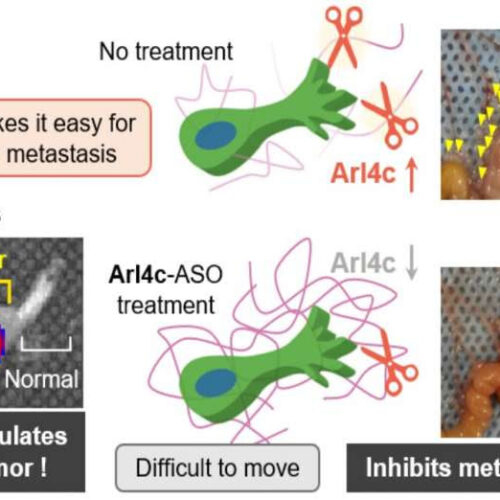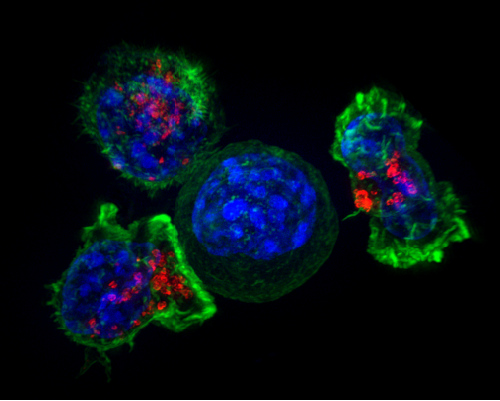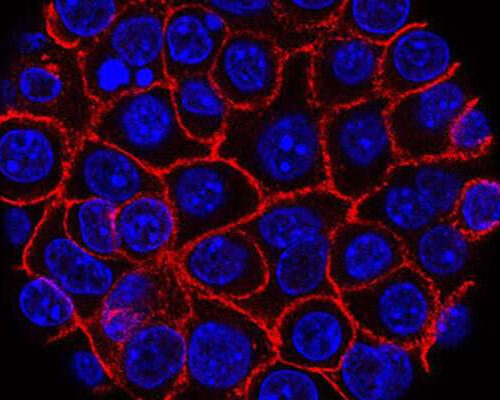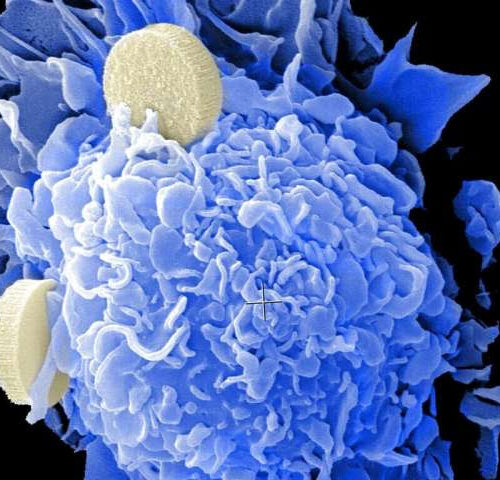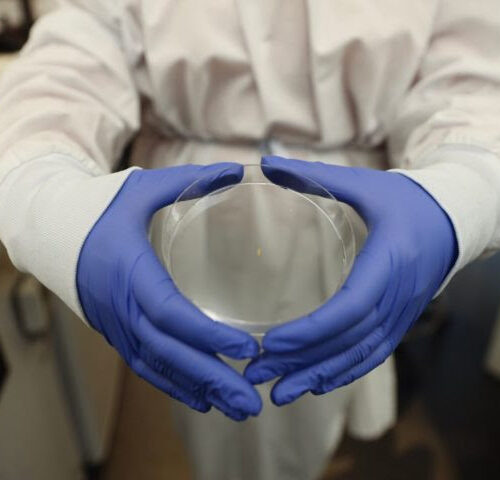by Osaka University Fig.1 Antisense oligonucleotide (ASO) targeting Arl4c inhibits pancreatic cancer metastasis. Credit: Akikazu Harada Pancreatic cancer is very aggressive and, unfortunately, has a poor prognosis with a 5-year survival of only 5%. Most deaths related to pancreatic cancer are due to metastasis, which occurs when the tumor invades other organs. Treatments to stop tumor...
Tag: <span>Pancreatic cancer</span>
New findings on bacteria that increase risk of pancreatic cancer
Bacteria from the digestive system seem to have the potential to cause damage to pancreatic cells, increasing the risk of malignant tumours. Now for the first time, live bacteria from cystic pancreatic lesions that are precursors to pancreatic cancer, have been analysed by researchers at Karolinska Institutet in Sweden. The study, which is published in Gut...
New symptoms identified that could help doctors diagnose pancreatic cancer
NATIONAL CANCER RESEARCH INSTITUTE Researchers have identified a series of symptoms associated with pancreatic cancer, including two previously unrecognized symptoms – feeling thirsty and having dark urine – in a study presented today (Monday) at the NCRI Festival.[1] The study has confirmed a further 21 signs of pancreatic cancer and shown that patients often have...
Experimental drug boosts immunotherapy effectiveness in pancreatic cancer in mice
by Georgetown University Medical Center Killer T cells surround a cancer cell. Credit: NIH An experimental drug enhanced the benefit of an immunotherapy to fight pancreatic cancer in mice by increasing the number of immune cells in the immediate vicinity of the tumor, leading to a reduction in tumor growth, and in some mice, eliminating...
Tiny Worms Sniff Out Early-Stage Pancreatic Cancer
Donavyn Coffey A new study suggests that tiny, clear nematodes can sniff out early-stage pancreatic cancer. Research shows Caenorhabditis elegans (C elegans) are attracted to the odor certain chemicals give off — a behavior known as attractive chemotaxis — and early evidence indicates these scents may include human cancer cell secretions, cancer tissues, and urine from patients with...
Unique aspects of pancreatic cancer proteins could lead to early detection, new treatments
A large international collaboration led by researchers from the Johns Hopkins Kimmel Cancer Center has identified promising new targets for pancreatic cancer treatment and early diagnosis after examining various aspects of these tumors’ genes and proteins. Their findings, published online Sept. 16 in Cell, could offer hope to patients with this deadly disease. “Right now, patients with pancreatic cancer have...
Link between inflammation and pancreatic cancer development uncovered
by University of Texas M. D. Anderson Cancer Center Pancreatic cancer cells (blue) growing as a sphere encased in membranes (red). Credit: National Cancer Institute A new discovery from researchers at The University of Texas MD Anderson Cancer Center has clarified the long-established connection between inflammation and pancreatic cancer development. According to the study published today in Science, pancreatic...
Researcher unlocks new approach for possible pancreatic cancer treatment
by Indiana University Credit: Unsplash/CC0 Public Domain Researchers at the Indiana University Melvin and Bren Simon Comprehensive Cancer Center have identified how restoring a missing molecule in pancreatic fibrosis could help deliver treatments to cancer cells. Pancreatic cancer is one of the deadliest cancers with only 10.8 percent of people surviving five years after diagnosis. One risk factor for...
Research aims to improve health outcomes for pancreatic cancer patients
A Swinburne-led research team is exploring the use of a tiny implant that delivers chemotherapy directly into the tumour of a patient with pancreatic cancer. This device could hold the key to improving surgical outcomes for patients by shrinking the tumour so it can be safely removed. The proposed implant is part of a world-first project being...
Study shows that anti-parasitic drug slows pancreatic cancer in mice
by Johns Hopkins University School of Medicine Credit: CC0 Public Domain As the third-most lethal cancer in the United States, with only a 1% five-year survival rate for people with its most aggressive form, pancreatic cancer has long been a target of researchers who search for ways to slow or stop its growth and spread. Now,...

